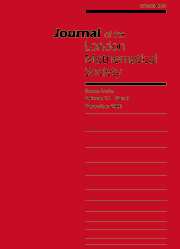Crossref Citations
This article has been cited by the following publications. This list is generated based on data provided by Crossref.
Barber, Ben
Hindman, Neil
and
Leader, Imre
2013.
Partition regularity in the rationals.
Journal of Combinatorial Theory, Series A,
Vol. 120,
Issue. 7,
p.
1590.
KITTIPASSORN, TEERADEJ
and
NARAYANAN, BHARGAV P.
2014.
A Canonical Ramsey Theorem for Exactly m-Coloured Complete Subgraphs.
Combinatorics, Probability and Computing,
Vol. 23,
Issue. 1,
p.
102.

